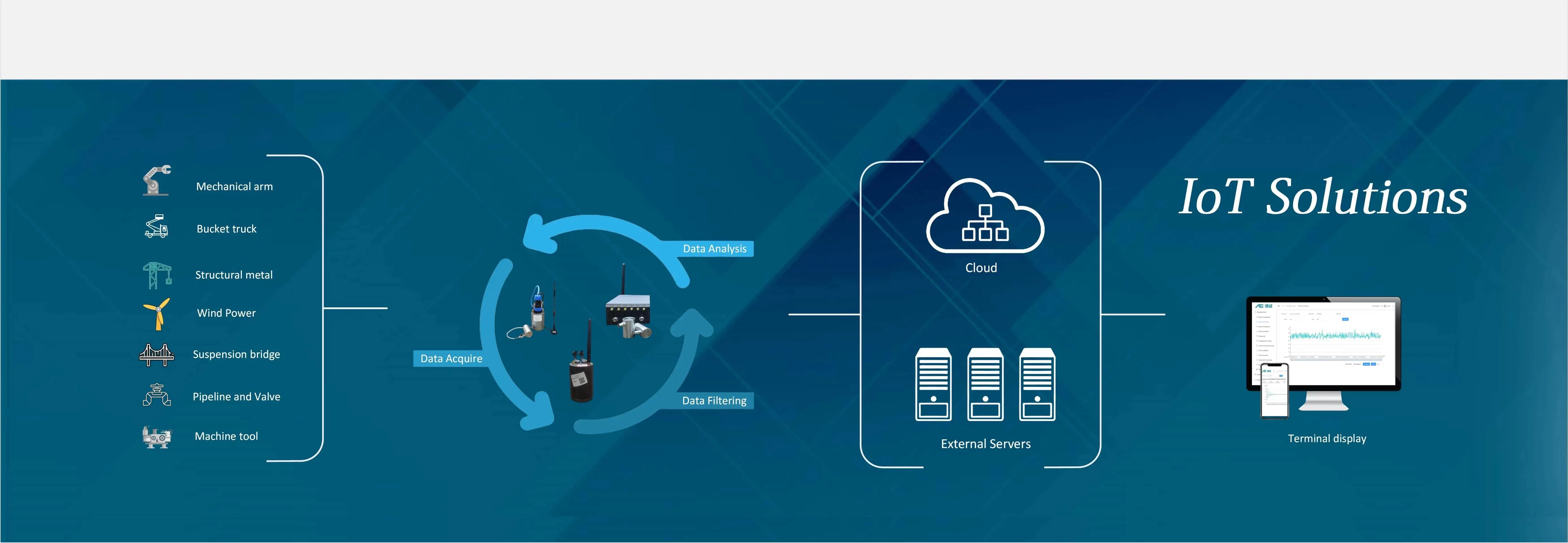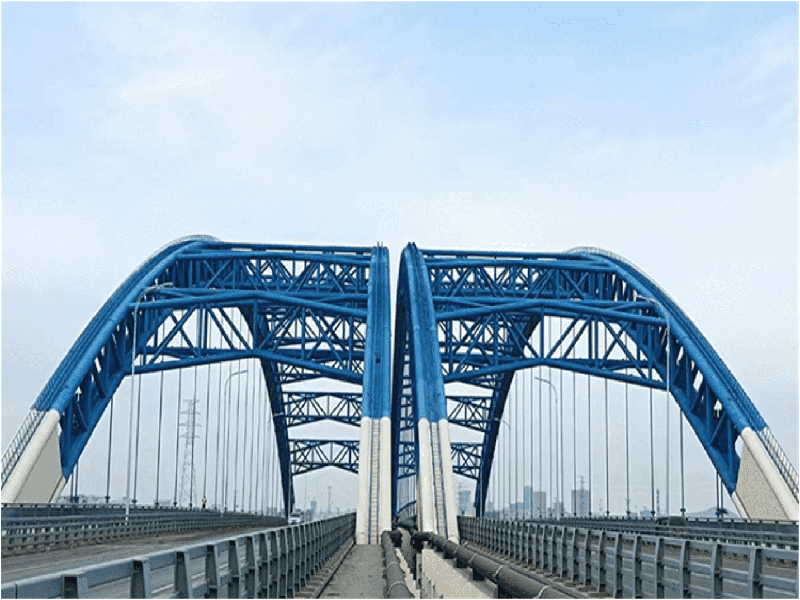Акустическая волна (акустическая эмиссия)
СИСТЕМА МОНИТОРИНГА ОБРЫВОВ ПРОВОДОВ МОСТОВОГО КАБЕЛЯ
Введение в приложение
Принцип
В течение срока службы моста легко происходят обрывы тросов моста из-за воздействия большой нагрузки, коррозии под воздействием окружающей среды, коррозии под напряжением, коррозионной усталости, водородного охрупчивания и т. д.
При разрыве мостовой проволоки генерируется сильная упругая волна, которая распространяется по внутренней части стального троса к датчику акустической эмиссии, установленному на стальном тросе. Блок сбора данных выполняет анализ обработки системы и вычисляет характерные параметры источника акустической эмиссии, идентифицирует и извлекает эффективные сигналы обрыва проволоки, а также анализирует состояние обрыва проволоки троса.
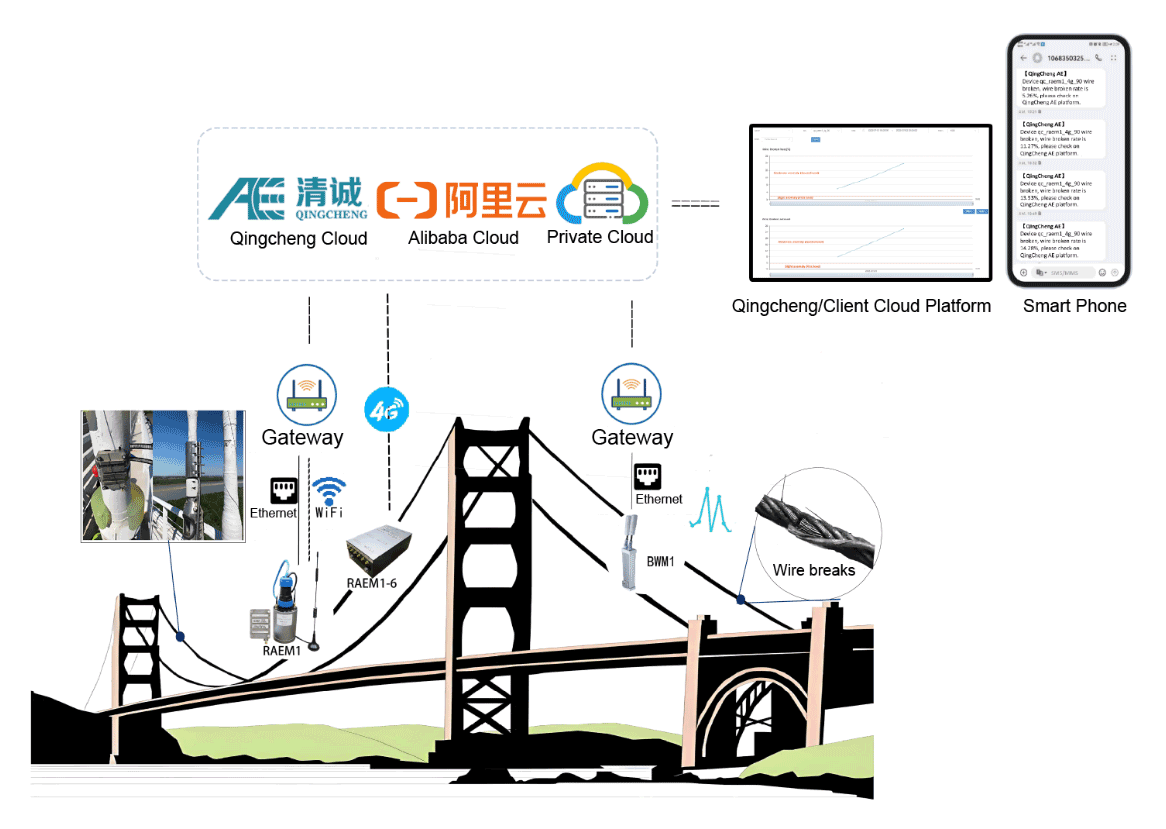

Визуализация процесса
Круглосуточный непрерывный онлайн-мониторинг и обнаружение акустической эмиссии, автоматический анализ результатов всего процесса, а также удаленное управление и использование Интернета вещей.
- Автоматически выдавать результаты диагностики обнаружения и мониторинга;
- Отображение на экране онлайн-данных и исторических данных;
- Автоматически отправляются сообщения о срабатывании сигнализации обрыва провода.
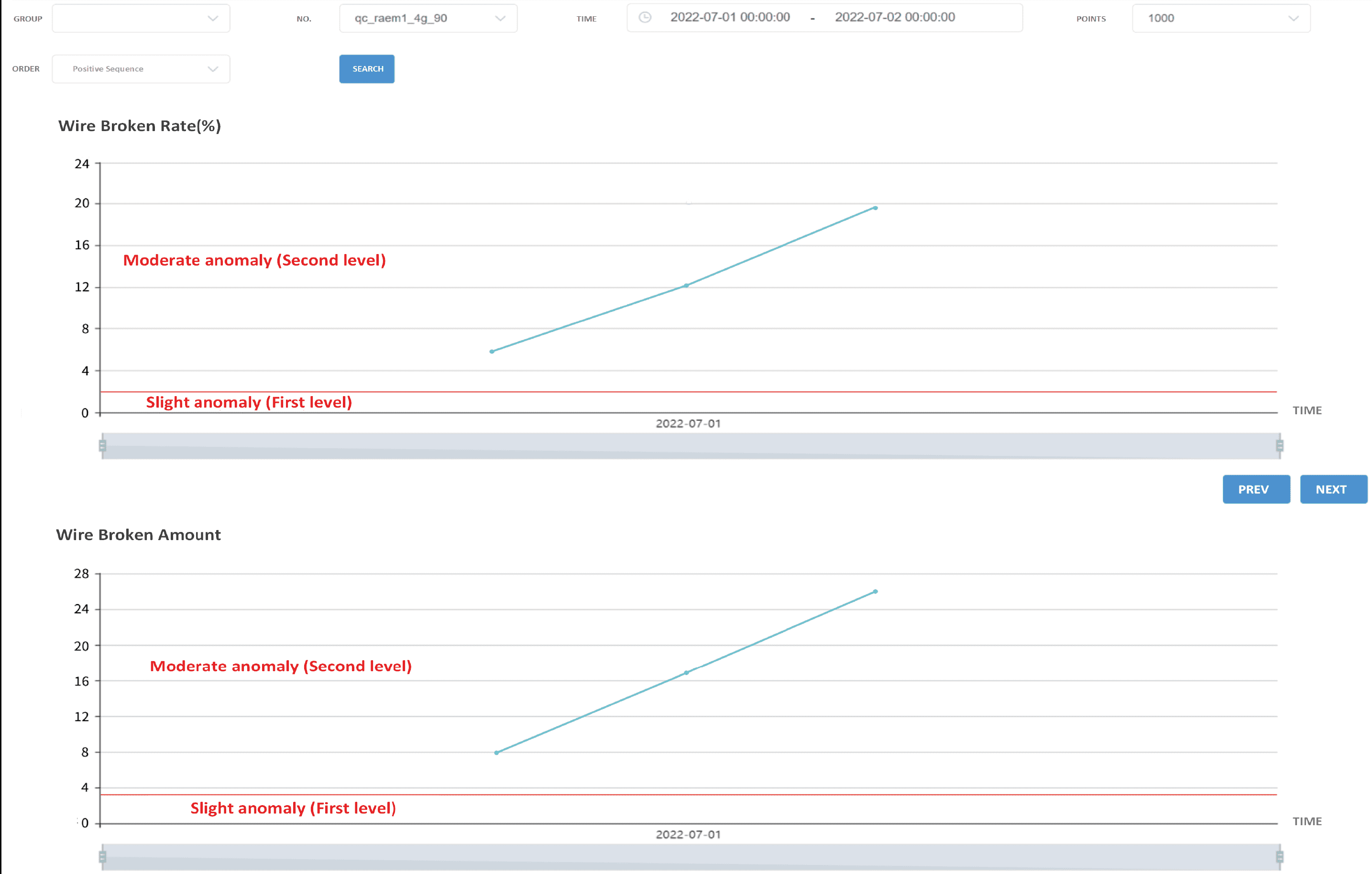
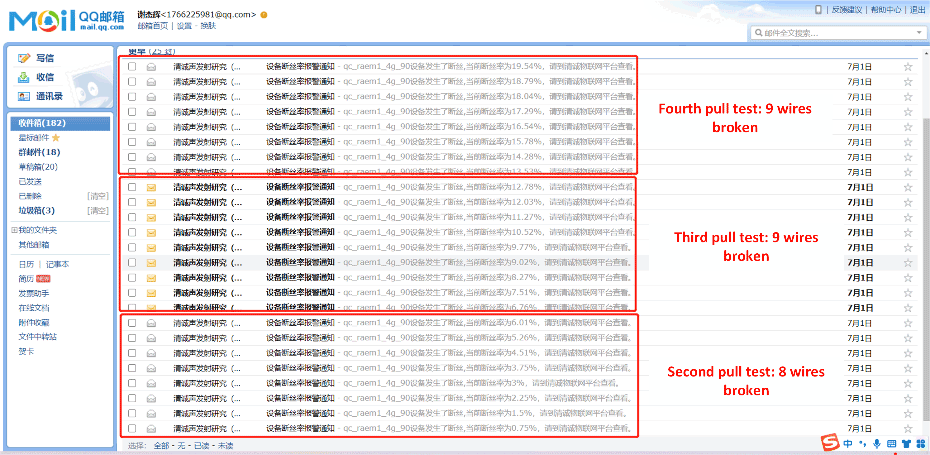
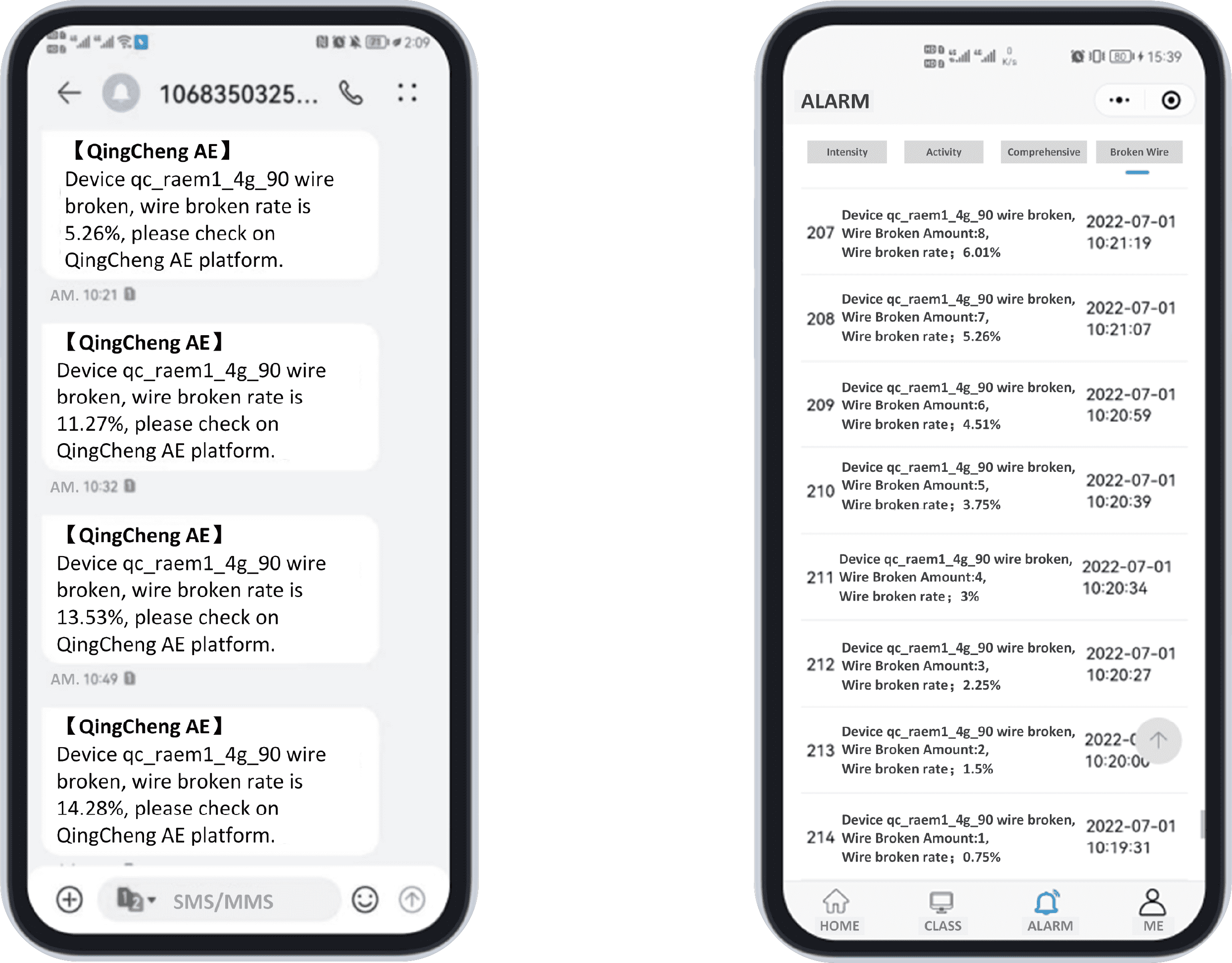
Результаты
а) Осуществлять мониторинг и обнаружение обрывов тросов и основных канатов подвесных мостов, вантовых мостов, подвесок (кабелей) арочных мостов или стяжек в соответствии со стандартом JT/T 1037-2022 Технические условия мониторинга конструкций автодорожных мостов;
б) Укажите количество оборванных проводов и частоту обрывов проводов каждого кабеля в соответствии со стандартом (процентное отношение количества оборванных проводов к общему количеству кабелей является частотой обрывов проводов);
в) Пользователи могут своевременно проводить проверки, ремонты и замену кабелей в соответствии со стандартным содержанием, чтобы предотвратить потери и несчастные случаи, вызванные накоплением повреждений.
Области применения
Контроль обрывов строп и основных тросов подвесных мостов, тросов вантовых мостов, тросов (тросов) или стяжек мостов с затяжкой арок.

Подвесной мост
Основные тросы и подвески

Вантовые мостовые
кабели

Подвесные арочные
мосты
Решения
Решение 1: Система мониторинга акустических волн (акустической эмиссии) цепного типа - BWM1
Principle: When a bridge cable breaks, a strong elastic wave will be generated and propagated along the inside of the steel cable to the BWM1 acoustic wave (acoustic emission) monitoring system installed on the steel cable. The system identifies and extracts effective wire breaking signals and analyzes the wire broken status of the cable.
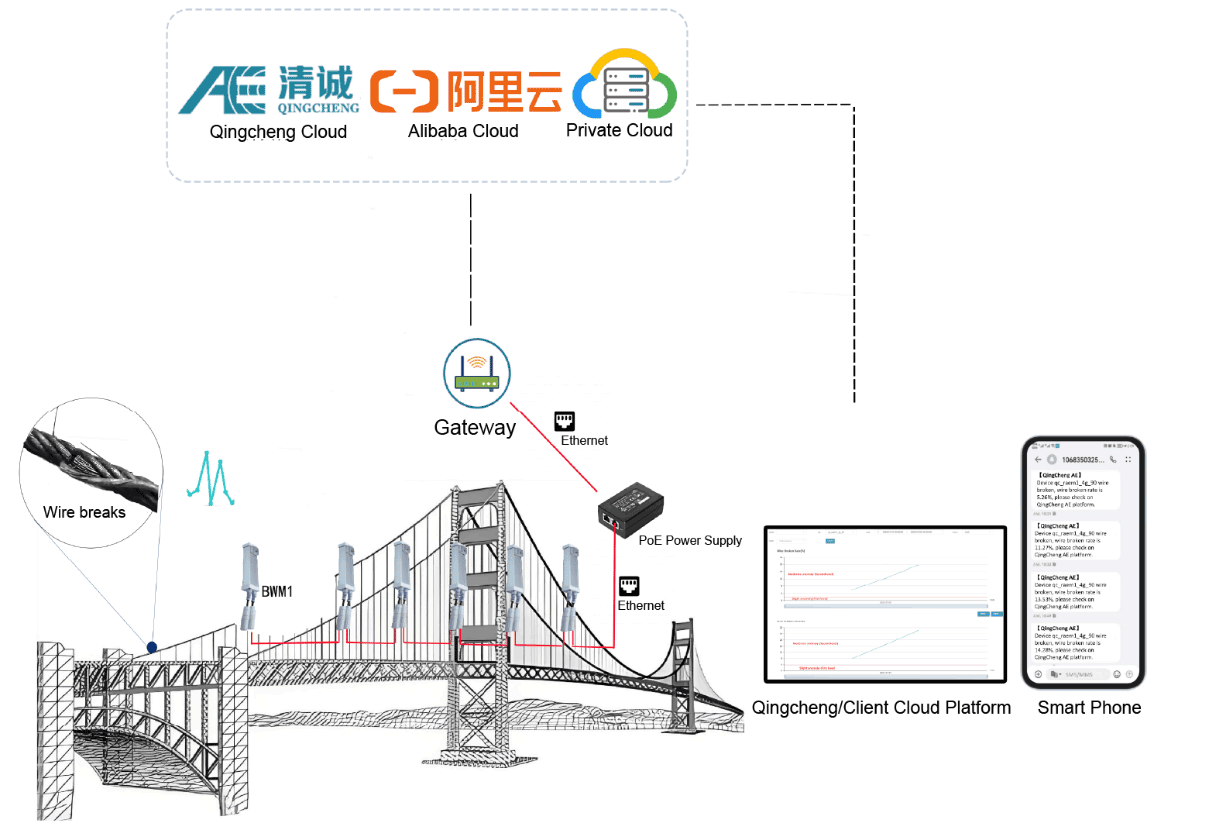
| System Components | Communication Method |
| BWM1, POE, Router | Ethernet |
Solution 2: Centralized Acoustic Wave (Acoustic Emission) Monitoring System - RAEM1-6
Principle: When a bridge cable wire breaks, a strong elastic wave will be generated and propagated along the inside of the steel cable to the acoustic emission sensor installed on the steel cable. The RAEM1-6 multichannel acoustic wave (acoustic emission) monitoring system identifies and extracts effective wire breaking signals and analyzes the wire broken status of the cable.
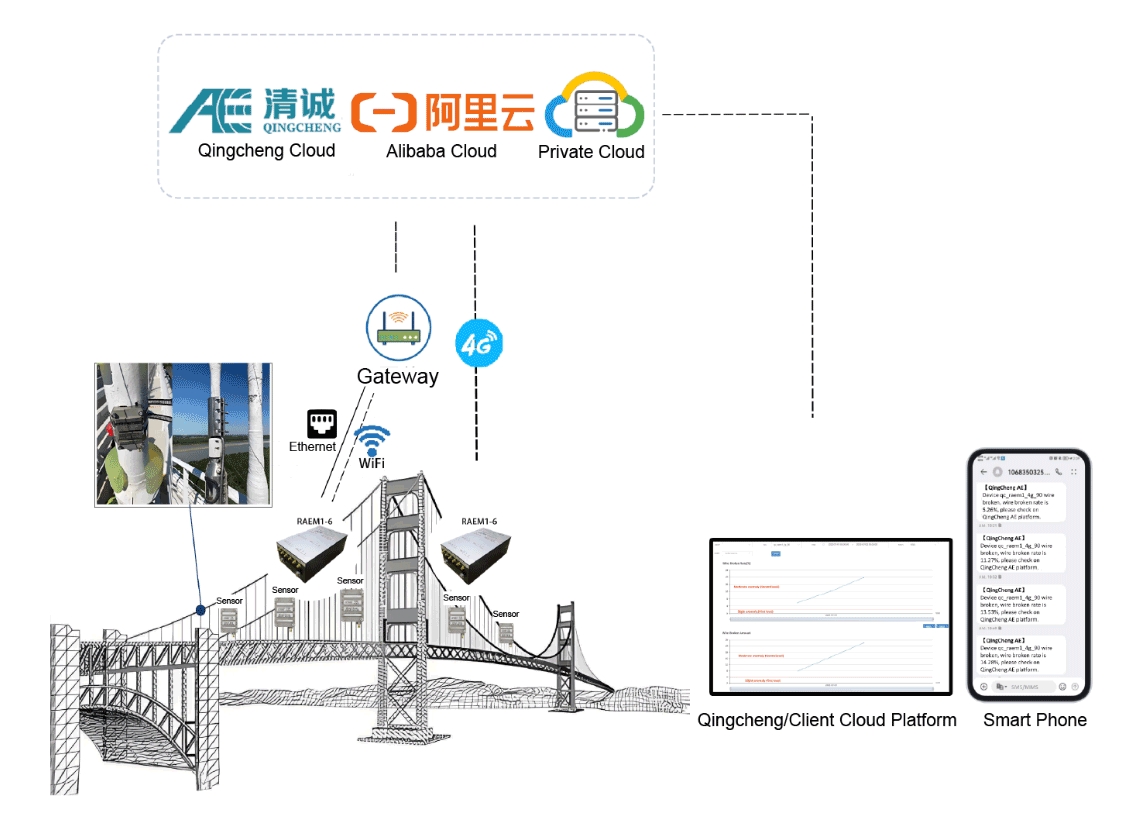
| System Components | Communication Method |
| AE sensor, RAEM1-6, Cloud server, client terminal | 4G, WiFi, or Ethernet |
Solution 3: Distributed Acoustic Wave (Acoustic Emission) Monitoring System - RAEM1
Principle: When a bridge cable wire breaking happens, a strong elastic wave will be generated and propagated along the inside of the steel cable to the acoustic emission sensor installed on the steel cable. The RAEM1 acoustic wave (acoustic emission) detection system identifies and extracts effective wire breaking signals and analyzes the wire broken status of the cable.
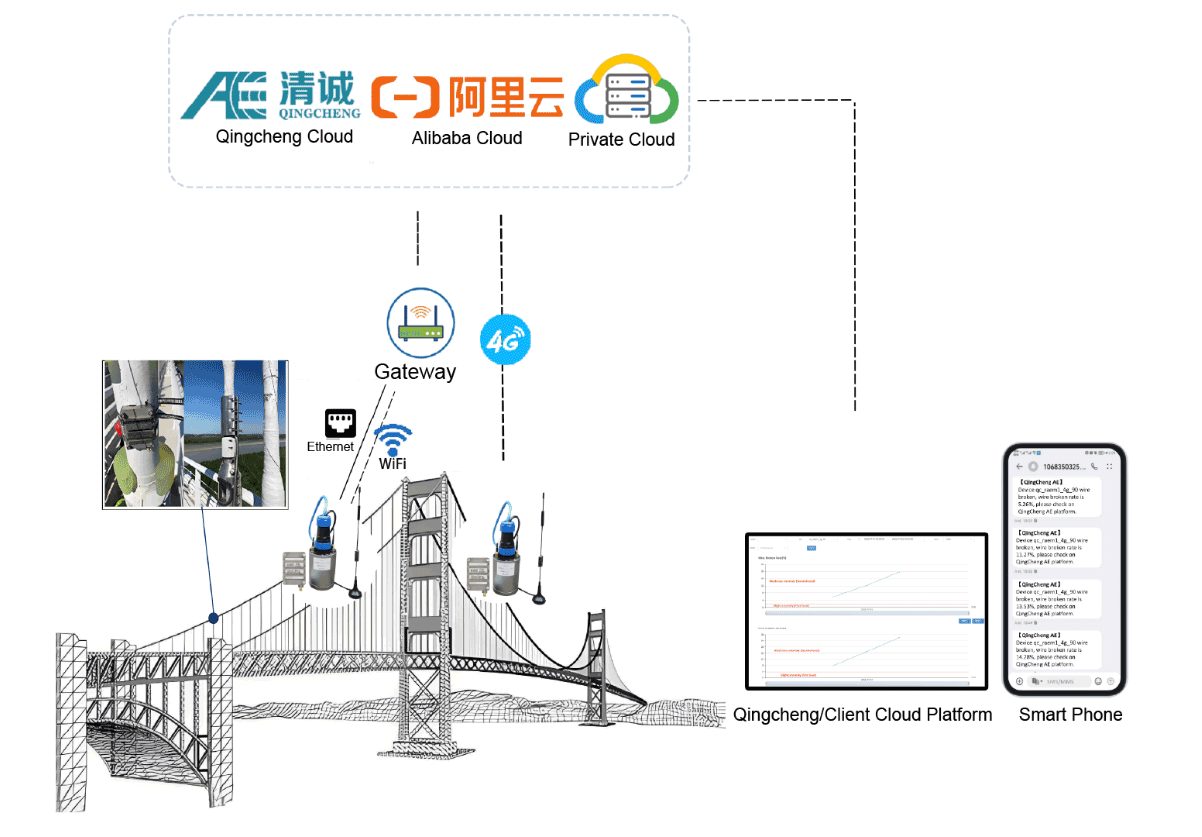
| System Components | Communication Method |
| AE sensor, RAEM1, Cloud server, client terminal | 4G, WiFi, Ethernet, RS485 |
Equipment Introduction
Based on the previous three monitoring solutions, the hardware parameters and advantages of the three devices are introduced.
| Picture |
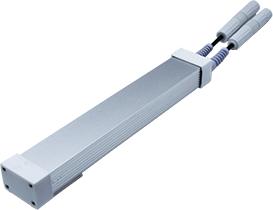 |
 |
 |
| Model | BWM1 | RAEM1-6 | RAEM1 |
| Sample Frequency | 2M points/sec maximum per channel | 2M points/sec maximum per channel | 2M points/sec maximum per channel |
| Sample Resolution | 16-bit | 16-bit | 16-bit |
| Channel | Single channel | 2 to 6 channels or cascade | Single channel |
| Frequency Range | 10kHz-800kHz | 10kHz-800kHz | 10kHz-800kHz |
| System Noise | Better than 30dB | Better than 30dB | Better than 30dB |
| Dynamic Range | 70dB | 70dB | 70dB |
| Communication | Ethernet | 4G, Ethernet, WiFi | 4G, Ethernet, WiFi, RS485 |
| Sensor Built-in | Center frequency at 40/150KHz optional; two built-in preamplifier gain optional: 20/40dB | / | / |
| Power Supply | PoE power supply | 12VDC | 12VDC |
| Dimension | 507*50*43mm (water-proof cap included) | 220 x 130 x 80 mm | Cylinder diameter 62mm, height 100mm |
| Weight | 285g | 1.6kg | 220g |
| Installation | Bandage (clamp) structure | / | magnetic bottom and can be adsorbed on the surface |
| Protection Degree | IP67 | / | IP65 |
| Operation Temperature | -30℃~+70℃ | -20℃~60℃. (WiFi version is 0℃~60℃) | -20℃~60℃. (WiFi version is 0℃~60℃) |
| Single Node Connection Distance | Max 400 meters Ethernet cable and connect 6 devices in series | / | / |
| Advantages | Chain series connection refers to connecting the BWM1 with built-in sensors in series with Ethernet cable through a PoE power adapter, realizing data transmission through the PoE and simplifying the wiring method of the sensor. | Based on the Linus system, it has stable performance and wireless communication capabilities, making it suitable for long-term remote unattended monitoring. The equipment can be cascaded to form a large monitoring system. | The acoustic emission detector has built-in signal processing and communication modules, and its bottom is magnetic, so the device can be directly coupled to metal objects during installation. |
AE Sensor (Exclusive for Bridge Cable Monitoring)
- The sensor surface curve is customized to fit the bridge cables to be tested;
- The Attached Type acoustic emission sensor response frequency: 40KHz-100KHz;
- Resonant Frequency: 50KHz;
- The sensors have built-in preamplifier;
- Applicable temperature range for attached acoustic emission sensors: -20 ℃ to 55 ℃ (with a service life of 5-10 years) Complies with the requirements of JT/T 1037-2022 standard.


Process
1. Install equipment in key parts of the bridge and detect and monitor steel wire ropes;
2. Reasonably configure collection parameters and rating parameters;
3. Start monitoring, once a wire breakage occurs, the mobile phone and cloud platform will push an alarm message.
Installation
Install on the suspension cables, main cables, cable-stayed cables, arch bridge suspenders (cables) or tie rods that need to be detected and monitored. The wire breaks measurement points can be arranged at the end of the anchor head or attached to the outer surface of the cable sheath.
Qingcheng Cloud Platform
The data is uploaded to the cloud IoT platform (Qingcheng Cloud) for display and analysis. AE characteristic parameters: arrival time, amplitude, ASL, Energy, RMS, Duration, Counts, Rise Time, Rise Counts, Peak Frequency, Frequency Centroid, & 5 Partial Power Spectra Segments.
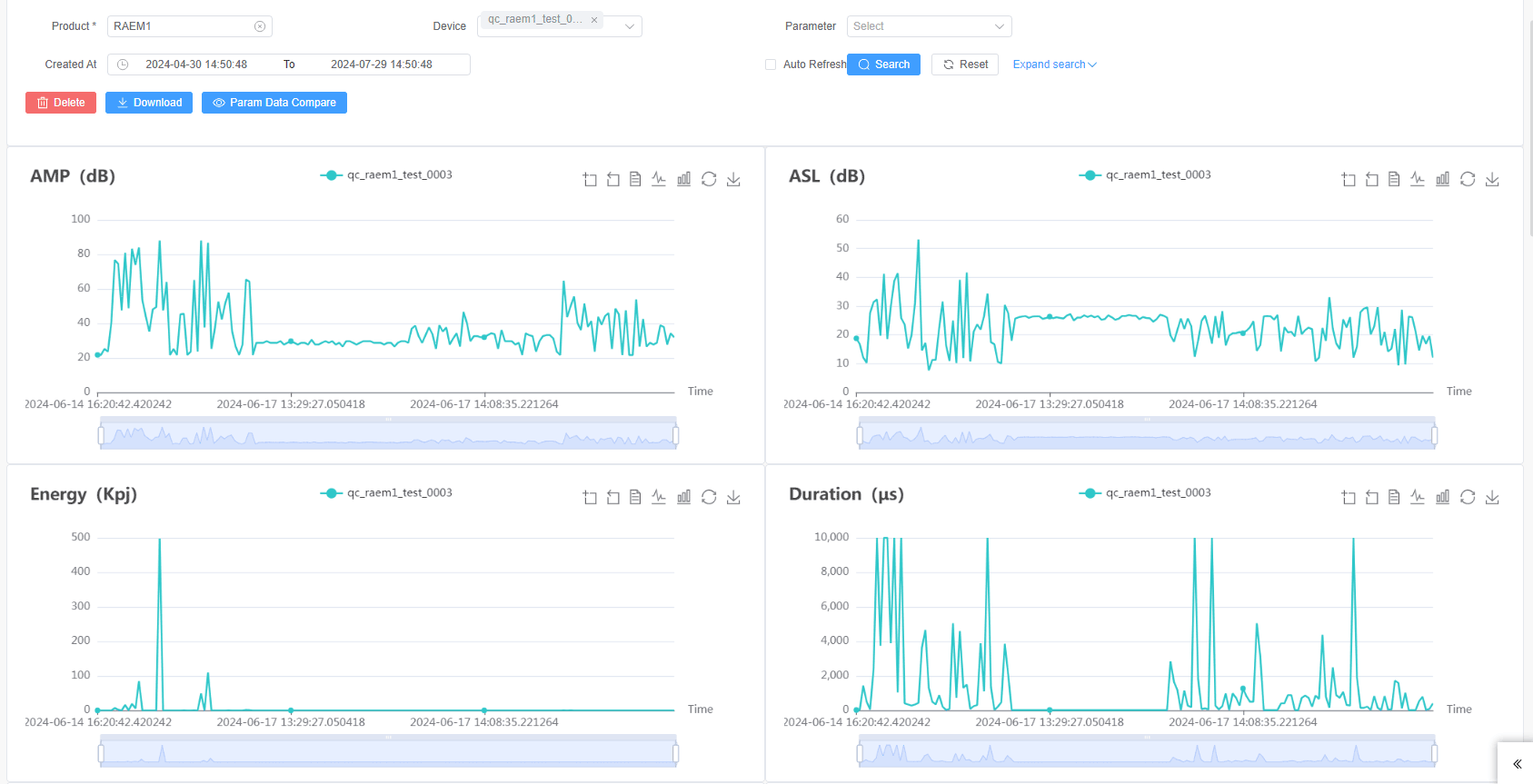
Remote configuration: remote configuration parameters, timing configuration, wire break rating settings.
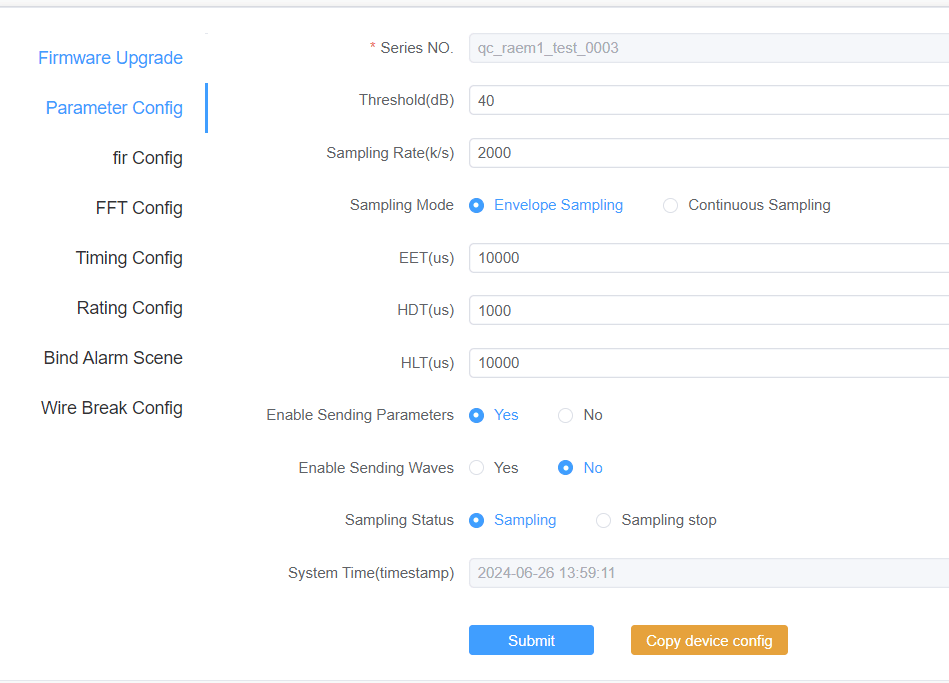
The system automatically rates, and the rating results can be viewed remotely on the cloud. The acoustic emission data uses an automatic grading algorithm to obtain the intensity level, activity level, and comprehensive level from the acoustic emission characteristic parameters. Flexible settings can meet the rating requirements of different industry standards.
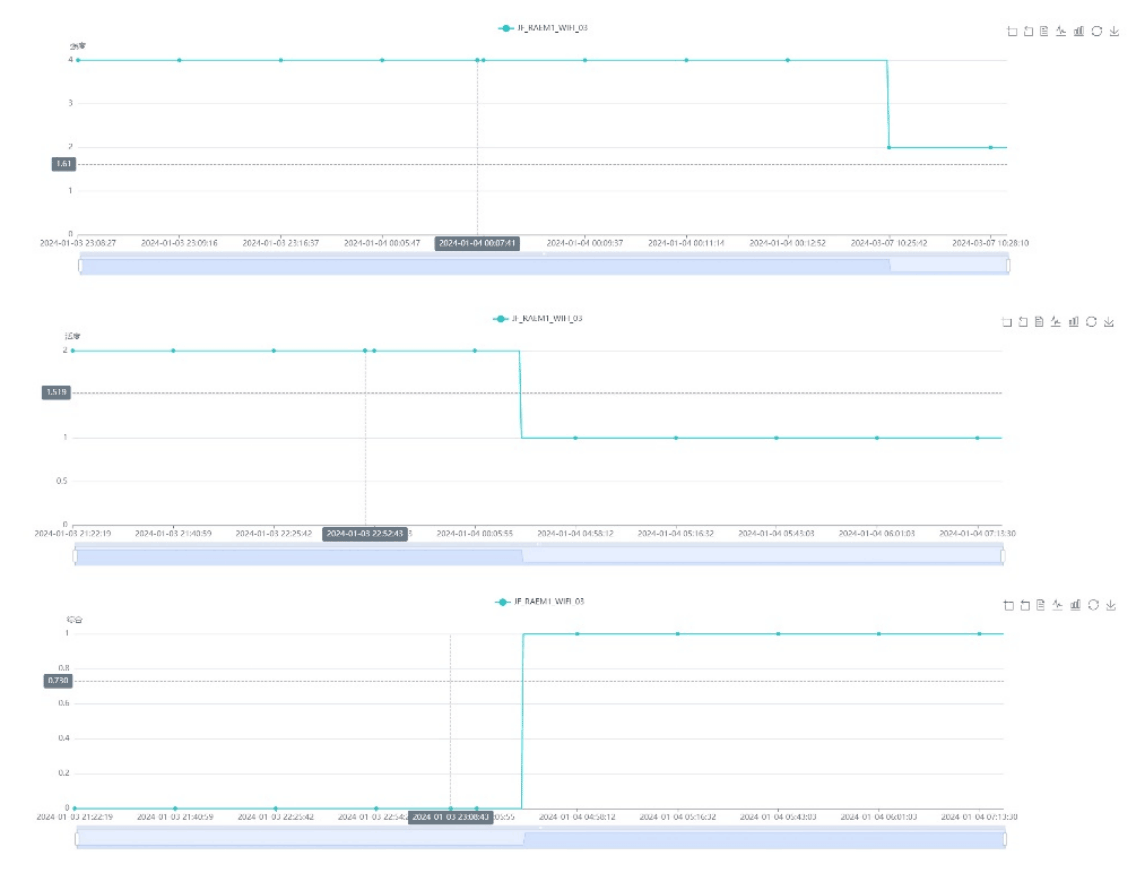
SWAE software
The SWAE acoustic emission system software is a combination of real-time acquisition and analysis and post-analysis software. In addition, SWAE software can be used for in-depth analysis and processing to understand the details of defects in detail, such as parameter analysis, location analysis, correlation diagram analysis, waveform analysis, fast Fourier transform, wavelet transform rating analysis, etc.
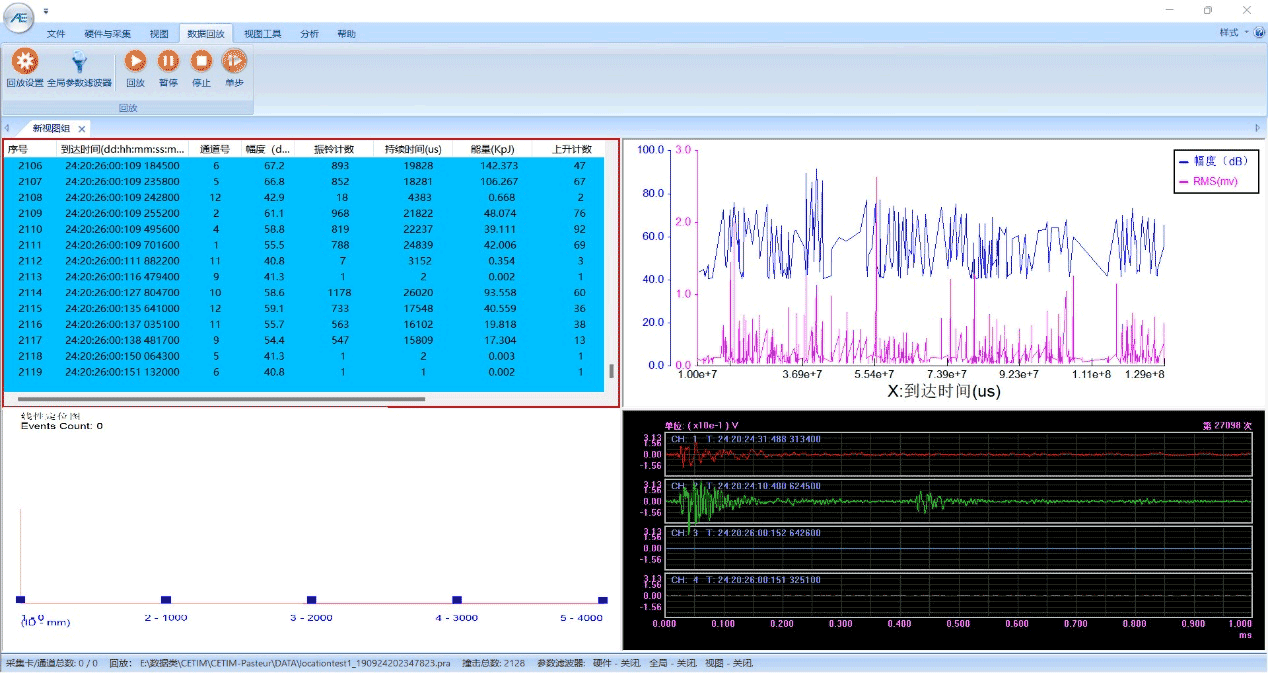
Case Study
Эксперимент по разрыву троса полноразмерного моста:
Совместная группа из QingCheng и производителя мостовых тросов провела успешный эксперимент по мониторингу акустических волн (акустической эмиссии) на стальном канате полноразмерного моста.

Схема эксперимента по обрыву троса полноразмерного моста
(P1 — положение обрыва троса, S — положение монитора RAEM1)

*Примечание: он соответствует стандарту JT/T1037-2022 «Технические характеристики мониторинга конструкций автодорожных мостов» и относится к «Уровню превышения предельного значения» в Таблице 9.
- Уровень 2: когда происходит обрыв провода;
- Уровень 3: частота обрывов проводов > 2%

Отображение в реальном времени количества и частоты обрывов проводов

Уведомление о тревоге по электронной почте или SMS
Случаи пользователей

- Мост через озеро Тайпин
- Мост Хелиуйе
- Мост Минчуань-роуд
- Мост Мааньшань
- Мост Цинси-Уэст-Роуд
- Мост Нинцзин Си
Исследование случаев
Контактная форма
Пожалуйста, заполните форму ниже, чтобы запросить расценки. Мы свяжемся с вами как можно скорее.

